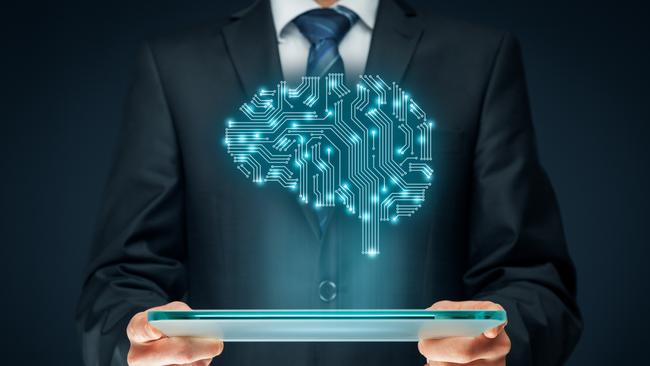Tech mind trickery has legal scholars scratching their heads
The law needs to pick up the pace in anticipating the challenges that come with advances in neurotechnology.

Attacks by mind-controlled drones, invasion of mental privacy and cognitive upgrades for workers afraid of losing their jobs are the dark side of potential neurotechnological advances that lawyers, politicians and human rights organisations must address.
“The law has a crucial role to play in this,” University of Sydney criminologist and legal scholar Allan McCay warns in a world-first report on the advance of technologies that interact directly with the brain by monitoring and recording neural activity and in some cases influencing it via implants, headsets, wristbands and helmets.
“There is a race on to develop commercially successful neurotech, particularly in the therapeutic, educational, workplace and consumer domains,” Dr McCay said. “Given the backing of neurotech projects from investors like Elon Musk, PayPal co-founder Peter Thiel and Facebook (Meta), one would expect that the uptake of the technologies in society is likely to increase.”
Billionaire investors Gina Rinehart and Will Vicars have also backed the Omniscient Neurotechnology start-up to map the brain’s electrical networks to make surgery more precise.
“We need law reform bodies, policymakers and academics to be scrutinising these advances rather than waiting for problems to emerge,” Dr McClay said.
It was not yet clear what sector would drive the changes, but for the time being medical devices were most prominent, although there were consumer, workplace and educational applications. The challenge would be to regulate without holding back the “miraculous” therapeutic upside the technology delivers, Dr McCay argues in the Neurotechnology, Law and the Legal Profession report commissioned by the Law Society of England and Wales.
People with epilepsy, Parkinson’s disease and locked-in syndrome are already benefiting from neurotechnological interventions, but the large amounts of data the technology was capable of accumulating could also breach mental privacy.
A British Ministry of Defence report last year noted brain interfaces could enhance concentration and memory, and enable manipulation of the physical world by thoughts alone.
Another recent research paper envisaged drones controlled by military neurotechnology.
The MOD report also said ultimately the technology could allow for new skills or knowledge to be “downloaded”. Dr McCay said there were obvious applications for students and workers. Given some claim it is already possible to monitor attention and stress levels, people might embrace a mental upgrade to gain an advantage at work, or as a defence against feared obsolescence.
This posed a specific challenge for the legal profession, if, for example, the traditional billable-hour costing mechanism were to be replaced by “billable units of attention”.
Dr McCay said implications for the criminal law included sentencing. “Would it be acceptable for criminal justice systems to monitor and perhaps even intervene on offenders’ brains?” he said.
“Let’s say the judge is making a legal order that requires someone to have their brain monitored 24/7 using an automated decision-making process to control their impulsiveness. The machine learning algorithm would ‘decide’ when they need stimulation, a kind of automated therapeutic intervention. The device would be gathering data. Which company runs it? What happens to the data?”




To join the conversation, please log in. Don't have an account? Register
Join the conversation, you are commenting as Logout